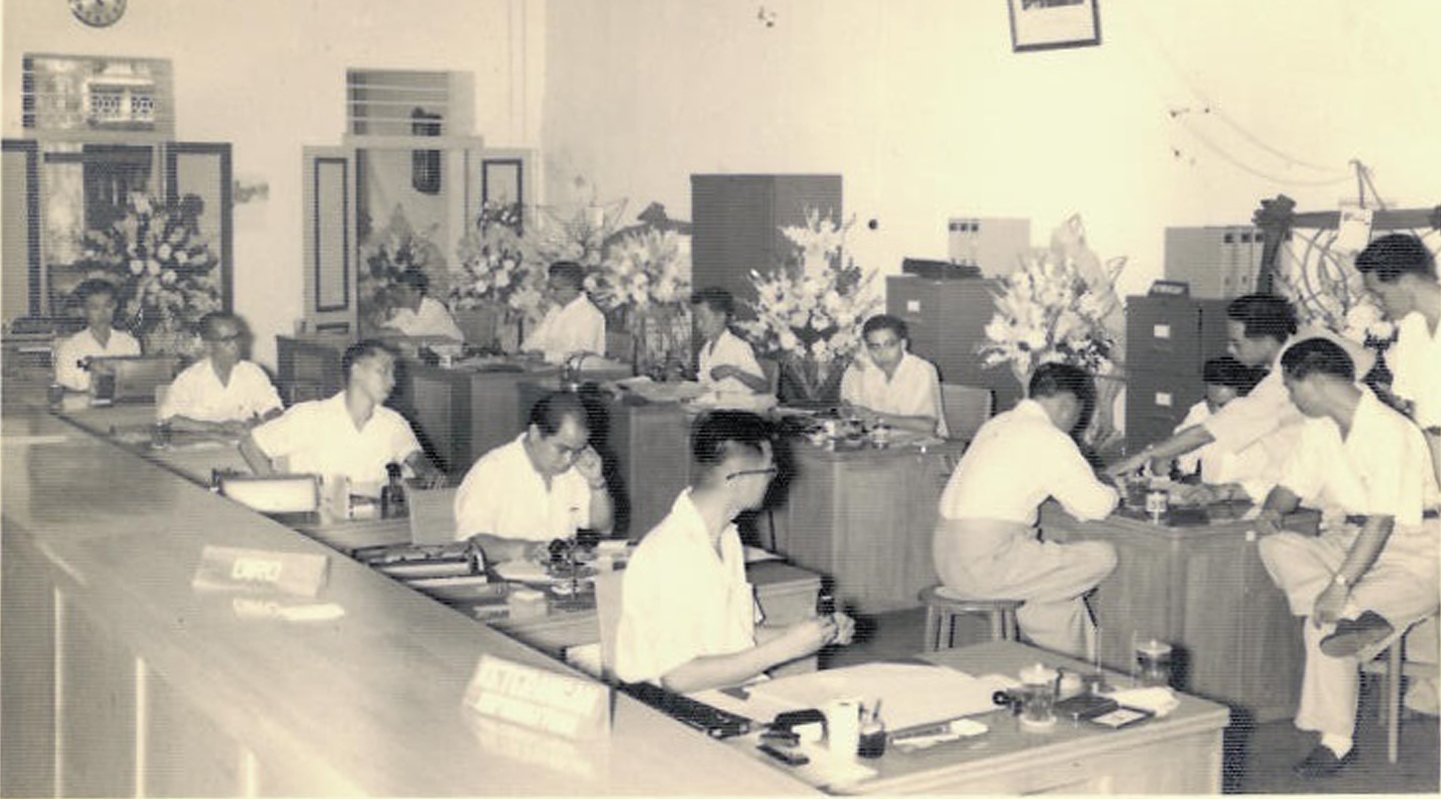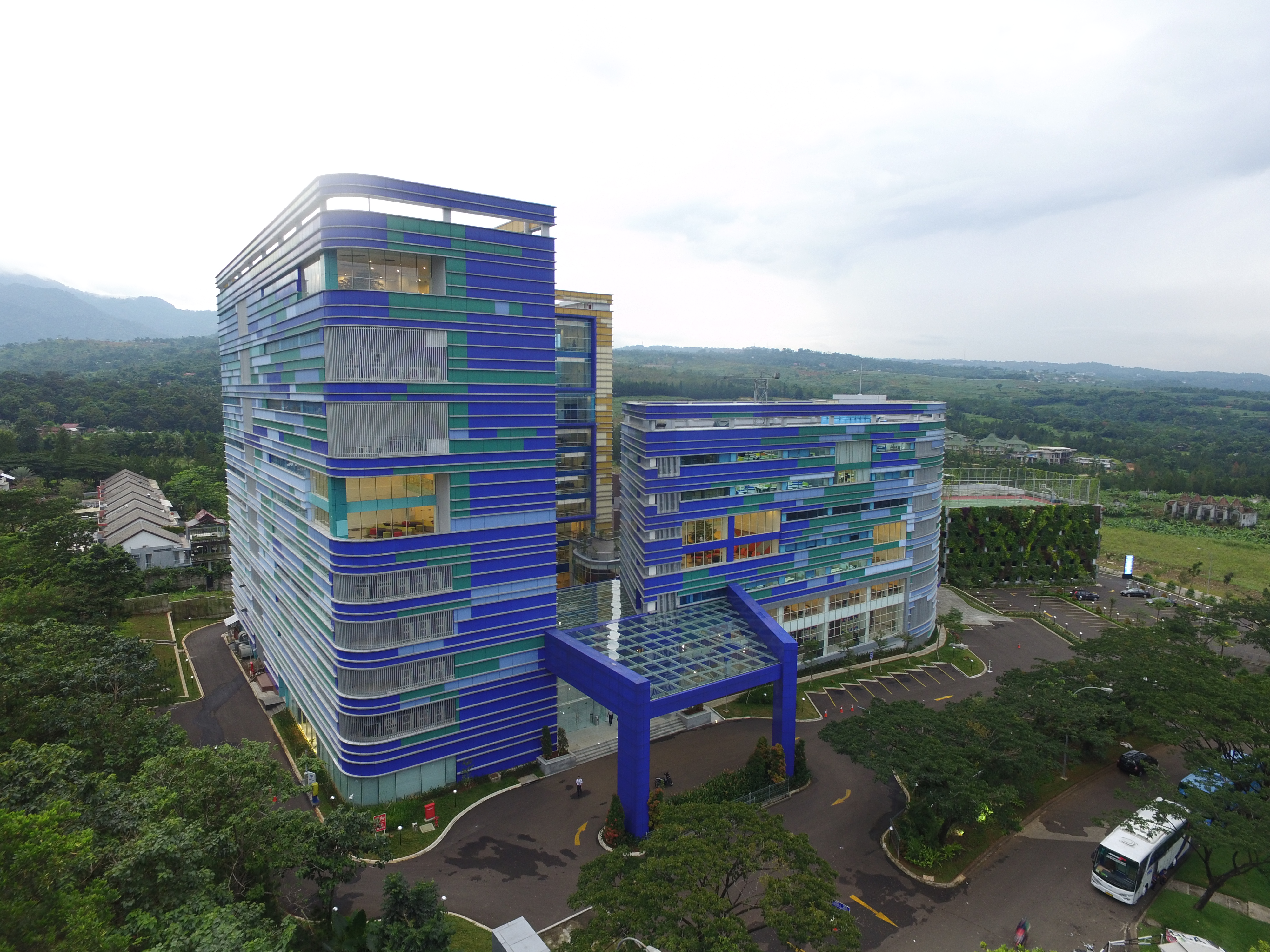1955's
1957

1970's
Effective on 2 September 1975 the name of the Bank was changed to PT Bank Central Asia (BCA).
BCA strengthens its delivery channels and obtained a license to open as a Foreign Exchange Bank in 1977.
1980's
BCA aggressively expanded its branch network in line with the deregulation of the Indonesian banking sector.
BCA developed its information technology capacity, by establishing an online system for its branch office network, and launches new products and services including the Tahapan BCA savings accounts product.
1990's
BCA develops the Automated Teller Machine (ATM) network as an alternative delivery channel.
In 1991, BCA installed 50 ATM units in various locations in Jakarta. BCA intensively develops the ATM network and features.
BCA works with well-known institutions, such as PT Telkom and Citibank, allowing BCA’s customers to pay their Telkom phone bill or Citibank credit card bill through BCA ATMs.
1998's
BCA experiences a bank rush during the Indonesian economic crisis.
In 1998 BCA became a Bank Take Over (BTO) and was placed under the recapitalization and restructuring program operated by the Indonesian Bank Restructuring Agency (IBRA), a Government Institution.
1999's
BCA was fully recapitalized with the Government of Indonesia, through IBRA, assuming ownership of 92.8% of BCA shares in exchange for liquidity support from Bank Indonesia and a swap of related-party loans for Government Bonds.
Business development 2000-2005
BCA strengthens and develops its products and services, especially in electronic banking, by launching Debit BCA, Tunai BCA, KlikBCA internet banking, m-BCA mobile banking, EDCBIZZ, etc.
BCA establishes a Disaster Recovery Center in Singapore.
BCA develops expertise in lending, including expansion into vehicle financing through its subsidiary, BCA Finance.
2000
IBRA divested 22.5% of its BCA shares through an Initial Public Offering, reducing its ownership of BCA to 70.3%.
2001
2002
2004
2005
2007
2008-2009
BCA proactively manages its lending and liquidity position in the face of unprecedented global turbulence while continuing to strengthen the core transaction banking franchise.
BCA completes the setting up of a mirroring IT system to strengthen business continuity and reduce operational risk.
BCA introduces Solitaire, a new banking service for high net-worth individual customers.
2010-2013
BCA entered new lines of business including Sharia banking, motorcycle financing, general insurance and the capital markets business. In 2013, BCA increased its effective ownership from 25% to 100% in its general insurance arm PT Asuransi Umum BCA (formerly PT Central Sejahtera Insurance and also known as BCA Insurance).
BCA strengthened its transaction banking through further development of innovative products and services, notably with mobile banking applications in the latest smartphones, with payment settlement services through e-commerce, and through a new concept of Electronic Banking Center which equips ATM Centers with additional technology-backed features.
Enhancing the reliability of its banking services, BCA completes a new Disaster Recovery Center (DRC) facility in Surabaya which functions as a disaster recovery backup data center, integrated with the current two mirroring data centers. The new DRC replaced the previous DRC in Singapore.
2014-2016
BCA developed MyBCA, a self-service digital banking outlet; expanded cash recycling machine-based ATM networks; and launched the Sakuku app-based electronic wallet.
The Bank’s cash management services for institutional customers were enriched on internet banking platforms, the KlikBCA integrated business solution. This service provides features to meet the needs of business customers.
In January 2014, BCA purchased shares in PT Central Santosa Finance (CS Finance), a two-wheeler financing company, increasing the Bank’s effective ownership from 25% to 70%. BCA also obtained permission to provide life insurance services through PT Asuransi Jiwa BCA (BCA Life).
In its role as a major gateway and perception bank, BCA participated in the successful implementation of the government’s tax amnesty program from July 2016 to March 2017.

2017-2018
BCA completed a 100% share acquisition (directly and indirectly) of PT Bank Royal Indonesia in October 2019. Post-acquisition, Bank Royal’s business model will transform into a digital-based bank, complementing BCA’s established digital channels.
In December 2019, BCA entered into a conditional sale and purchase agreement (CSPA) to acquire a 100% equity stake in PT Bank Rabobank International Indonesia subject to regulatory and shareholders approvals.
BCA injected additional capital into BCA Syariah and CCV to support the business growth of the two subsidiaries.
BCA launched a series of innovative services throughout 2019 including BCA Keyboard (a finger-tip access to banking services on various online chat platforms); online account opening through BCA mobile; Welma (a mobile application for wealth management services).
The Bank is establishing a future branch model leveraging a range of technologies. The new model will enrich the customer experience and improve the operational efficiency of the branches.
2019-2020
In response to the dynamics of digital technology, customer behavior and business environment, BCA launched a series of digital service innovations in 2019, including BCA Keyboard (for direct access to banking transaction services on various online chat platforms), account opening via BCA Mobile, and WELMA (a mobile app for wealth management services that has now been integrated into myBCA). BCA also developed the concept of a future branch model by utilizing various digital technology machines. The model will further strengthen customer experience and improve operational efficiency at branch offices.
In the same year, BCA increased its capital investment in its subsidiary Central Capital Ventura (CCV) to strengthen the support of investment in fintech companies.
In October 2019, BCA completed the acquisition of PT Bank Royal Indonesia (Bank Royal) with an effective ownership (direct and indirect) of 100%. Post-acquisition, Bank Royal’s business model was transformed into a digital bank to synergize with BCA's digital banking network. In 2020, Bank Royal officially changed its name to PT Bank Digital BCA, followed by the launching of a digital bank application known as “blu by BCA Digital”.
At the end of 2019, BCA also entered into a Conditional Sale and Purchase Agreement for 100% share acquisition of PT Bank Rabobank International Indonesia (Rabobank). Subsequent to the acquisition, BCA merged Rabobank into another BCA subsidiary, BCA Syariah, in 2020. Post-merger, BCA Syariah became the surviving entity.
*PT. Bank Central Asia Tbk obtained the license as the bank under The Decree of Minister of Finance Number 42855/U.M.II dated 14 March 1957
